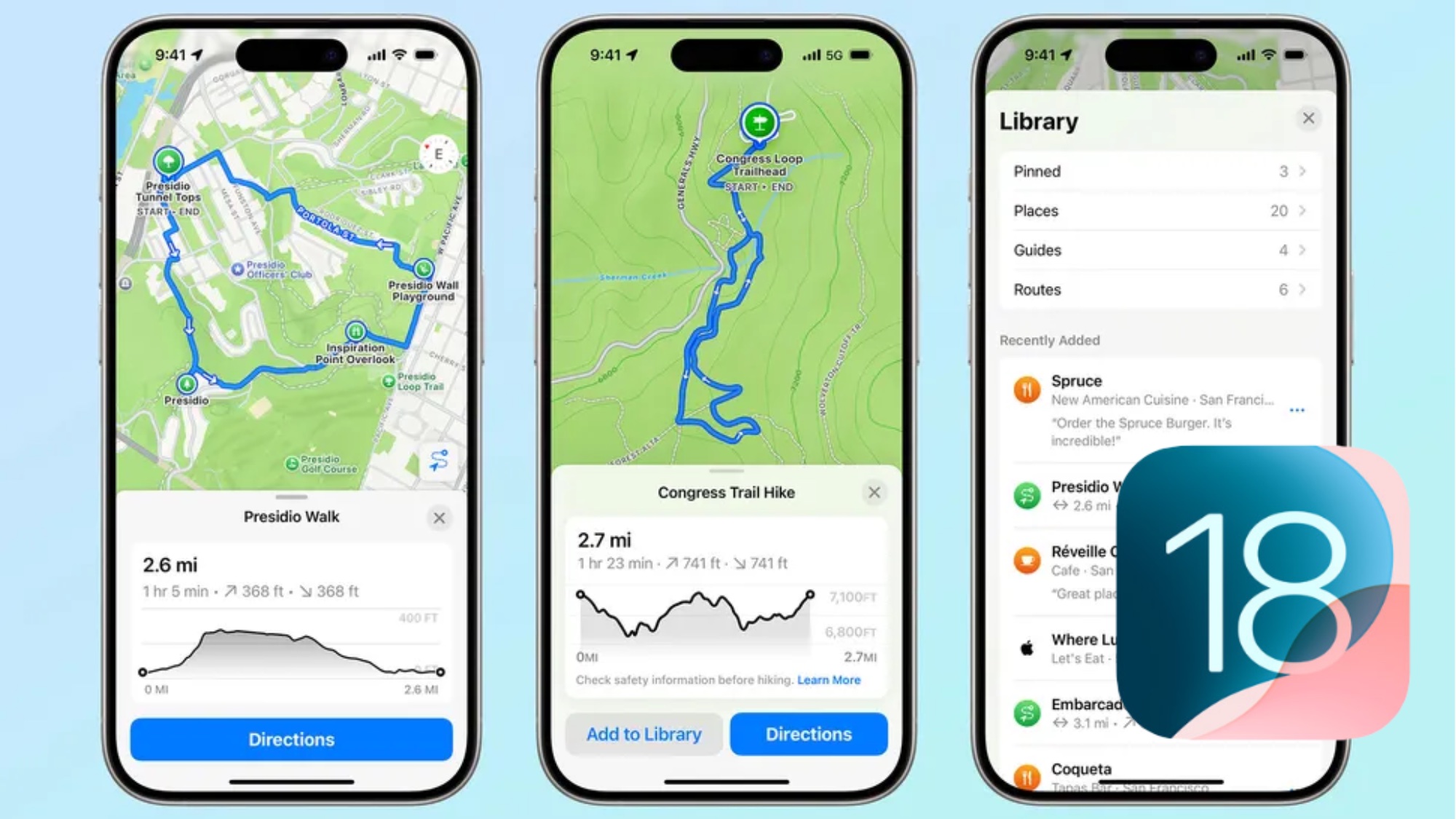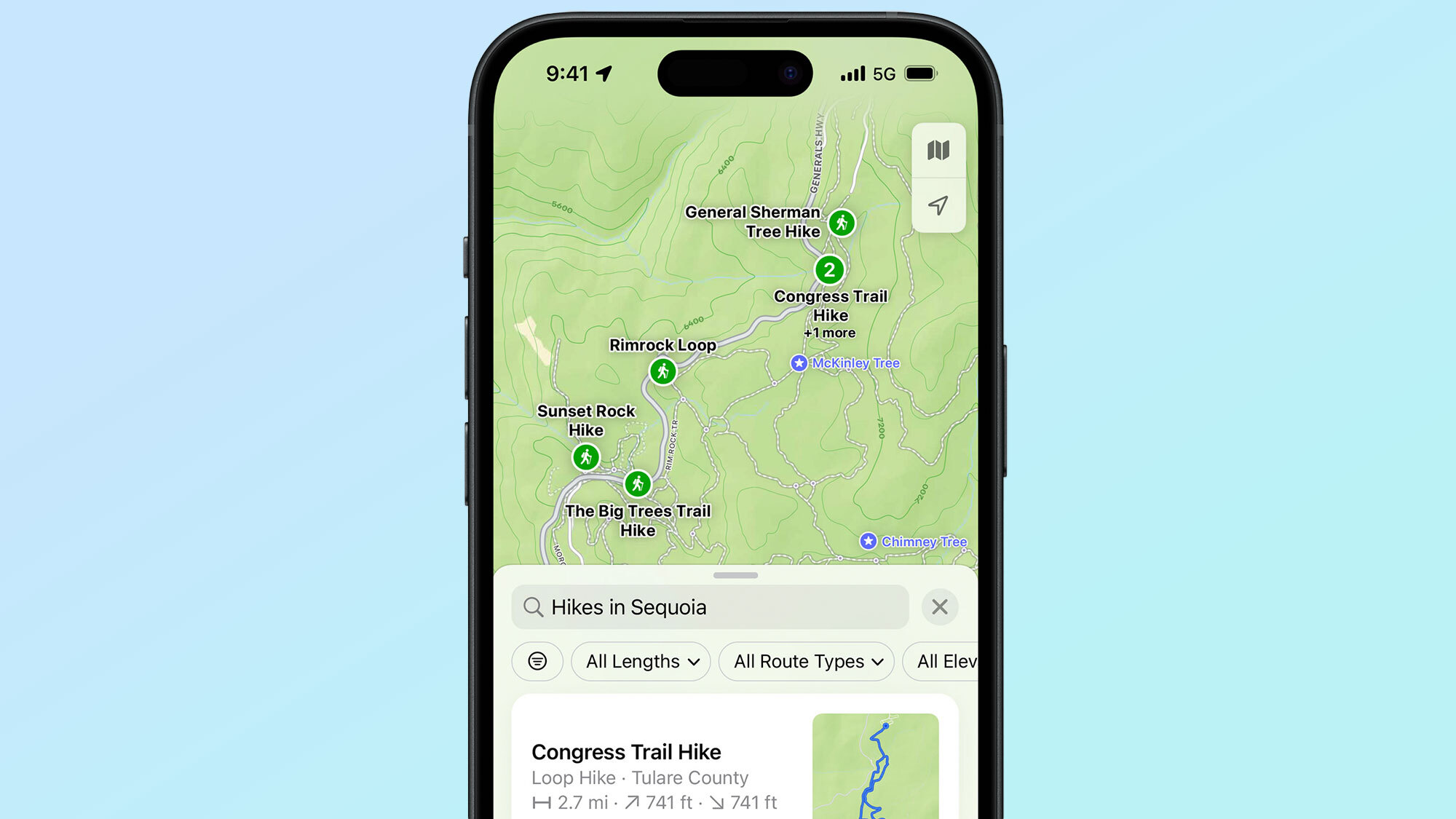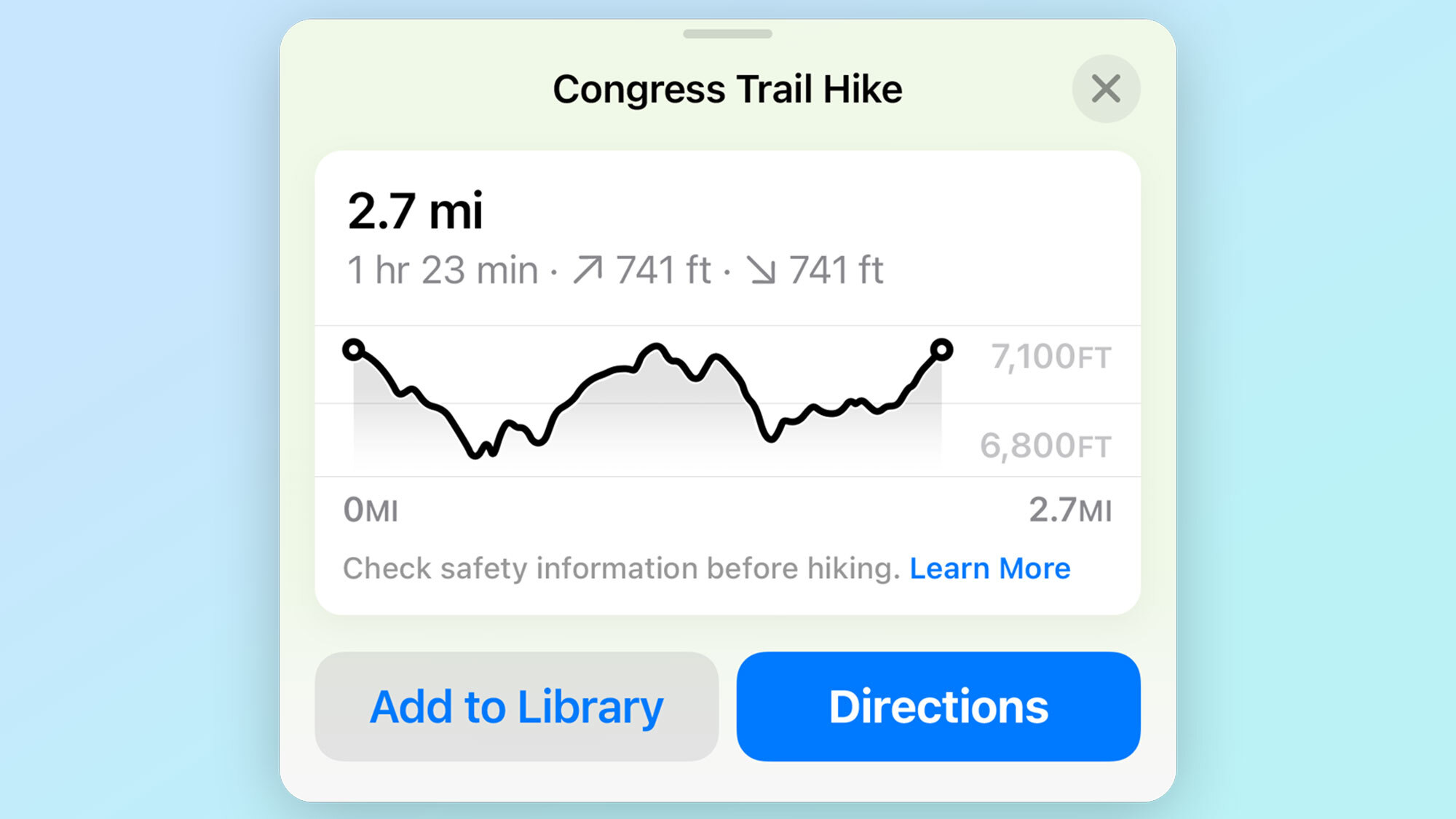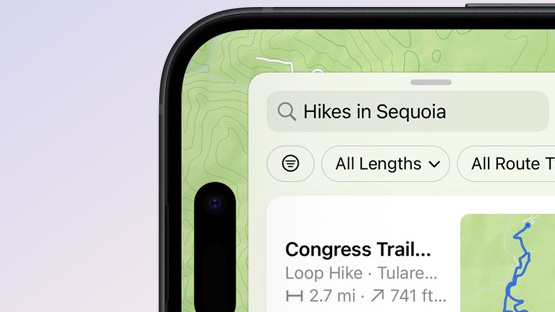
Compared to iOS releases of recent years, iOS 18 doesn't introduce that many new features to the built-in Maps app. Yet, if you enjoy the great outdoors in general and hikes in particular, the additions to iOS 18 Maps will be right up your tree-lined alley.
I'm not going to claim to be a great outdoorsman, but I do enjoy hiking. And as I've noted in the past, earlier versions of Apple's Maps app haven't really aided in that hobby. Getting accurate directions to and from trailheads has been a hit-and-miss prospect at best and the moment you leave the confines of your car to hit the trail, whatever usefulness Maps has offered you up until that point vanishes.
iOS 18 Maps looks to change all that. Apple is adding topographic maps to the built-in navigation tool, adding a sense of direction to your walks and hikes. Here's what you need to know about the additions coming to Maps in iOS 18 with the public beta arriving in a few weeks and the full version dropping later in the year.
Topographic maps in iOS 18

Apple's library of topographic maps leans heavily on U.S. National Parks, with all 63 of the parks now represented in the app. (On its iOS 18 preview page, Apple indicates this particular feature will only be available in the U.S. and Japan.)
U.S. National Parks are not exactly known for their extensive cellular towers or Wi-Fi hotspots, so you'll want to take advantage of another Maps feature of recent vintage — the ability to download specific maps onto your phone for offline use. Apple added offline maps in iOS 17, and bringing trail maps into the max seems like a natural extension of that capability.
As I learned when testing out the offline maps feature last year, it works best if you do your map downloading when you're connected to Wi-Fi. You access downloaded maps, by tapping on your picture next to the Maps search bar and then selecting Offline Maps from the menu that appears.
We'll learn more about the mechanics of how downloading and using trail maps works once iOS 18's public beta comes out. But Apple indicates that you'll be able to take advantage of turn-by-turn voice directions — helpful for those times when direction markers on the trail themselves prove difficult to interpret.

Another potentially helpful feature is the display interface Apple is using to showcase trail maps — at least based on a screenshot the company has posted in its iOS 18 preview. That images shows not only the distance of the trail, but an estimate of how long the hike should take, along with elevation and descent stats. All of that data can help hikers determine if they're up for that particular hike or if they're better off switching to a less strenuous option.
Apple indicates you'll be able to add notes to downloaded trail maps, though it appears this feature may be limited to U.S. iPhone owners.
Custom routes in iOS 18 Maps

Prior to the preview of iOS 18, rumors suggested that the updated version of Maps would add the ability to customize your routes. It turns out that is the case, but only when it comes to planning out walking and hiking routes in the app. It sounds as if driving routes will still be limited to the options that Maps presents you with.
As for those customization features, it sounds like walkers and hikers will get to choose between diferent route options such as "one way out," "there and back" or a loop trail.
iOS 18 Maps outlook
Apple says that iOS 18 Maps puts "thousands of hikes" at your disposal, presuming you live in a place where the feature is fully supported. We won't know how successfully trails and hiking have been integrated into the Maps app until we get a chance to use iOS 18 for ourselves, but this sounds like quite literally a step in the right direction for Apple's mapping efforts.
Slowly but surely, Maps has added improvements and new features in recent years that make it a worthy alternative to Google Maps. The addition of trails fills in a big blank space in the app's feature set — at least in theory. We'll know for certain once we head on a trail with Maps and the iPhone by our side.







